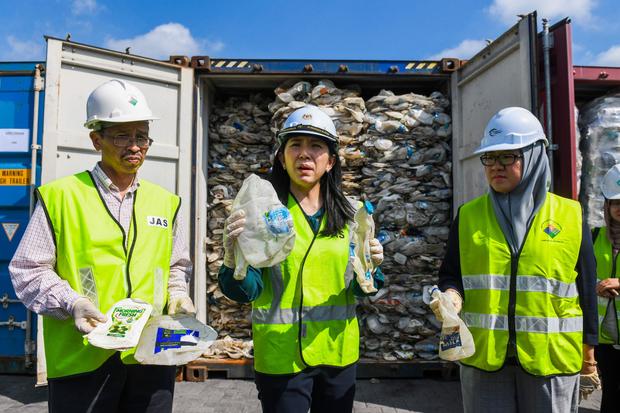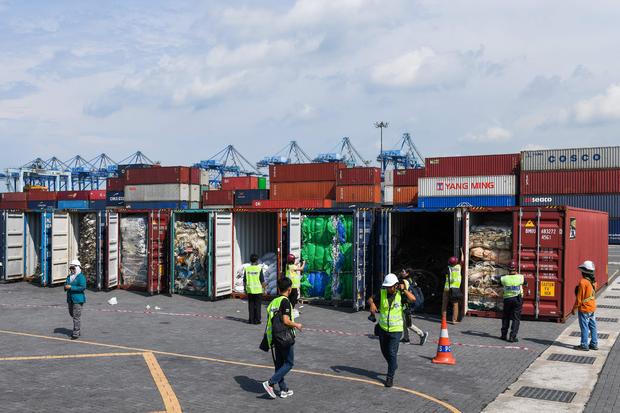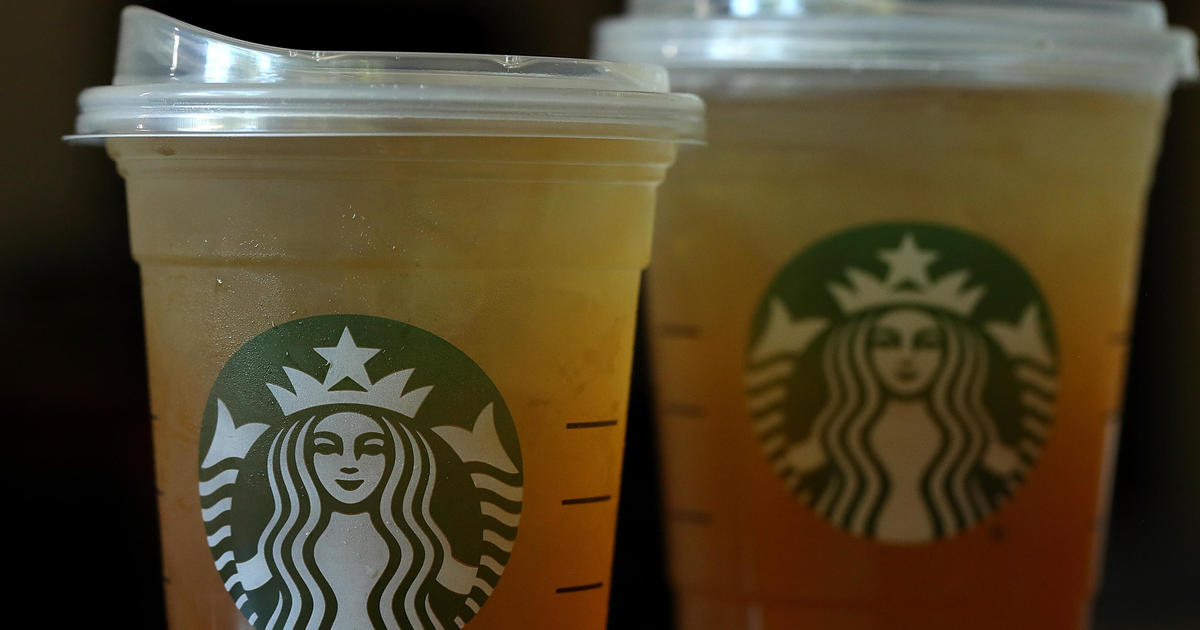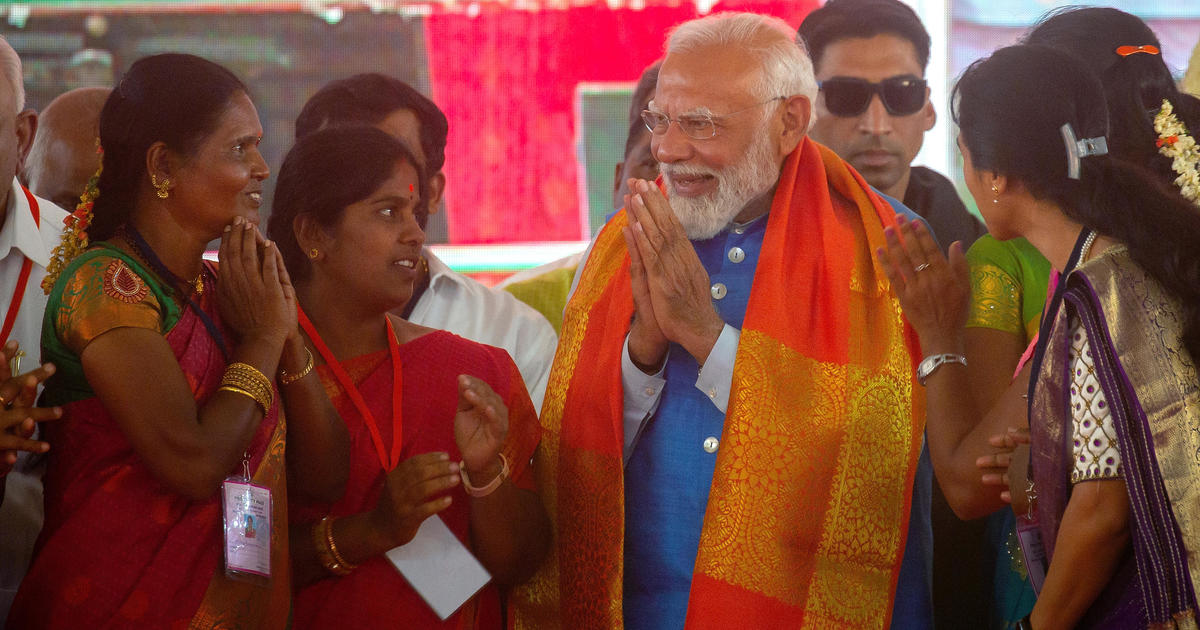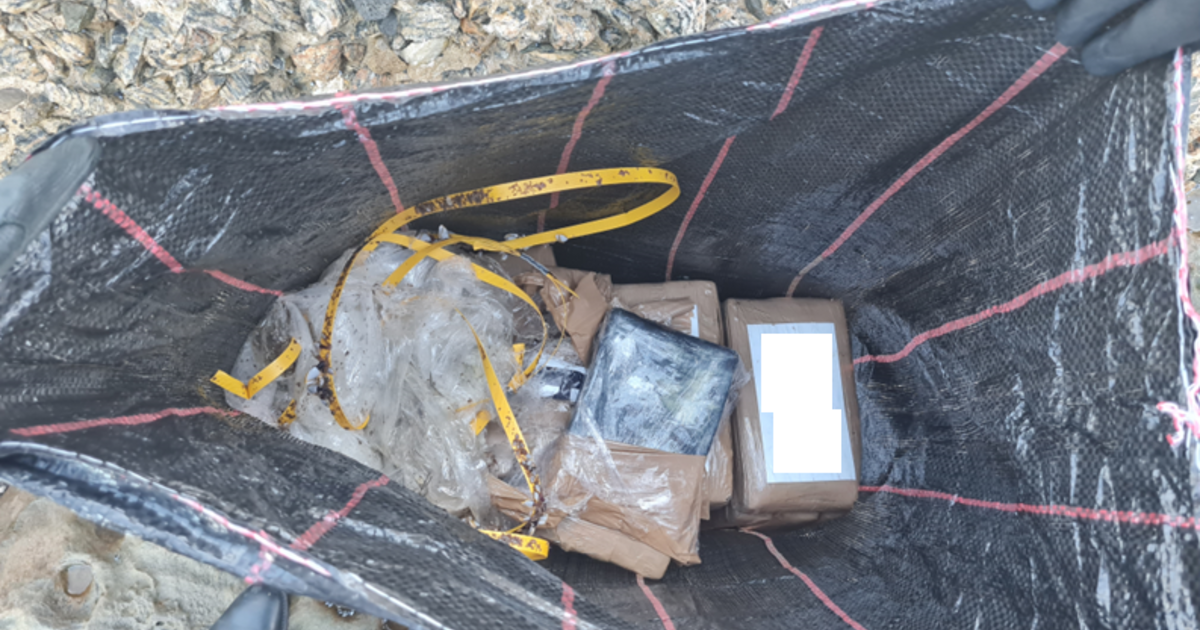Malaysia vows to send tons of non-recyclable garbage back to U.S., other developed nations
Port Klang, Malaysia -- Malaysia will send back some 3,300 tons of non-recyclable plastic waste to countries such as the U.S., U.K., Canada and Australia in a move to avoid becoming a dumping ground for rich nations, Environment Minister Yeo Bee Yin said Tuesday. Yeo said Malaysia and many developing countries have become new targets after China banned the import of plastic waste last year.
Last week, the Philippines said it would ship back dozens of containers of garbage which Filipino officials said were illegally shipped to the country from Canada in 2013 to 2014.
Yeo said 60 containers stacked with contaminated waste were smuggled in, en route to illegal processing facilities in Malaysia, and would be sent back to their countries of origin.
Ten of the containers are due to be shipped back within two weeks, she said, as she showed reporters contents of the waste at a port outside Kuala Lumpur.
The displayed items included cables from the U.K., contaminated milk cartons from Australia and compact discs from Bangladesh, as well as bales of electronic and household waste from the U.S., Canada, Japan, Saudi Arabia and China. Yeo said the waste from China appeared to be garbage from France and other countries that had been rerouted after a ban imposed by China.
While some reports have accused countries including China, Indonesia, the Philippines, Thailand and Vietnam of dumping the most plastics into the oceans, David Azoulay, managing attorney at the Center for International Environmental Law, told CBS News last week that it isn't their fault.
"When you compare those countries with the waste trade flow, what you find is those countries that are regularly reported as the biggest offenders or the biggest polluters of the ocean are in fact the ones receiving most waste from developed countries," he told CBS News. "When those countries are usually referred to as the biggest polluters of the ocean in the world, the accurate way to talk about them would be to call them the most polluted countries."
Earlier this month, exporting countries adopted an agreement at the United Nations to first get consent from receiving countries to dump waste that is contaminated or includes mixed or unrecyclable plastics.
Azoulay told CBS News that such preventative measures are the best way to solve the problems associated with the mass export of waste -- which he said can amount to a violation of the human rights of people in the importing nations.
In one case alone, Yeo said a U.K. recycling company exported more than 55,000 tons of plastic waste in about 1,000 containers to Malaysia over the past two years.
"This is probably just the tip of the iceberg (due) to the banning of plastic waste by China," Yeo told a news conference. "Malaysia will not be a dumping ground to the world ... we will fight back. Even though we are a small country, we can't be bullied by developed countries."
The government has clamped down on dozens of illegal plastic recycling facilities that had mushroomed across the country, shuttering more than 150 plants since last July. Earlier this month, the government also sent back five containers of waste to Spain.
Yeo said China's plastic waste ban had "opened up the eyes of the world to see that we have a huge garbage and recycling problem."
In Port Klang, Yeo said citizens in rich nations diligently separate their waste for recycling, but the garbage ends up being dumped in developing nations where they are recycled illegally, causing environmental and health hazards.
"We urge the developed countries to review their management of plastic waste and stop shipping the garbage out to the developing countries," she said, calling such practices "unfair and uncivilized."
Yeo vowed to take action against Malaysian companies illegally importing used plastic, calling them "traitors to the country's sustainability."
